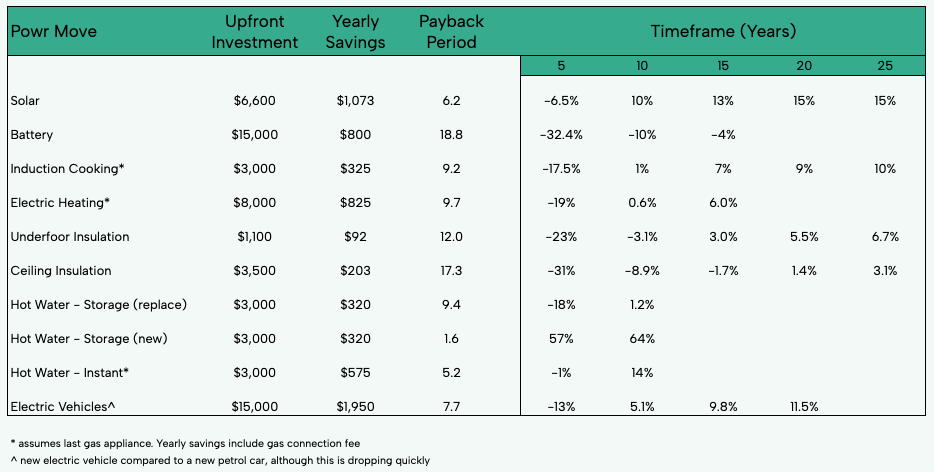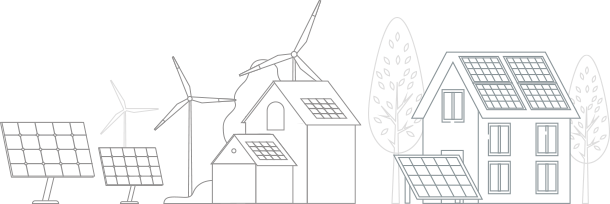We try to quantify as much as possible at Powrhouse. We use data from reputable sources to calculate the costs and savings from each of the Powr Moves we discuss. We do this when talking about individual Powr Moves like installing solar or heat pump hot water. We also thought it helpful to condense these calculations into one table.

We can see that not all Powr Moves are created equal. Installing solar and choosing a heat pump hot water unit over a gas storage unit make clear financial sense. Other key takeaways include:
- Timeline – we need to take into account the relevant timeline for each Powr Move. Many appliances need replacing. Although not the strongest financial cases, one of the benefits of insulation is it lasts a long time and will keep saving us on our energy bills without the need for further investment.
- Batteries – unfortunately they still don’t make financial sense. We hope the price of batteries continues to fall.
- Gas connection fee – some gas replacements don’t make financial sense unless they are the last gas appliance. Removing the last gas appliance means the household will save $300 to $350 per year on the fee charged by retailers to have the privilege of a gas connection.
- Draught Proofing – as we state in Where to Start?, we think the best place to start for many homes is Draught Proofing and improving a home’s thermal envelope. We haven’t included Draught Proofing or Double Glazing on this table as it’s too hard to approximate costs and savings.
One of the key factors we don’t take into account is the increase in gas and electricity prices. We do this by ignoring any discount factor. In traditional finance we would discount the savings over time into today’s dollars by using a discount factor, such as the risk free rate. Instead, we do not use a discount factor but equally, we don’t factor in any electricity and gas price increases which will lead to more savings over time. For the sake of simplicity, we assume they will cancel each other out. However, it is reasonable to expect gas prices in particular to increase significantly over time. We think these calculations are conservative as they probably understate the savings.
We base these calculations on typical, average scenarios. We need to make assumptions. While we believe our assumptions are reasonable, it doesn’t necessarily mean each of these will be accurate for each individual. Feel free to contact us and we can discuss how we can tailor a plan specific to you.


 Subscribe to Our
Subscribe to Our